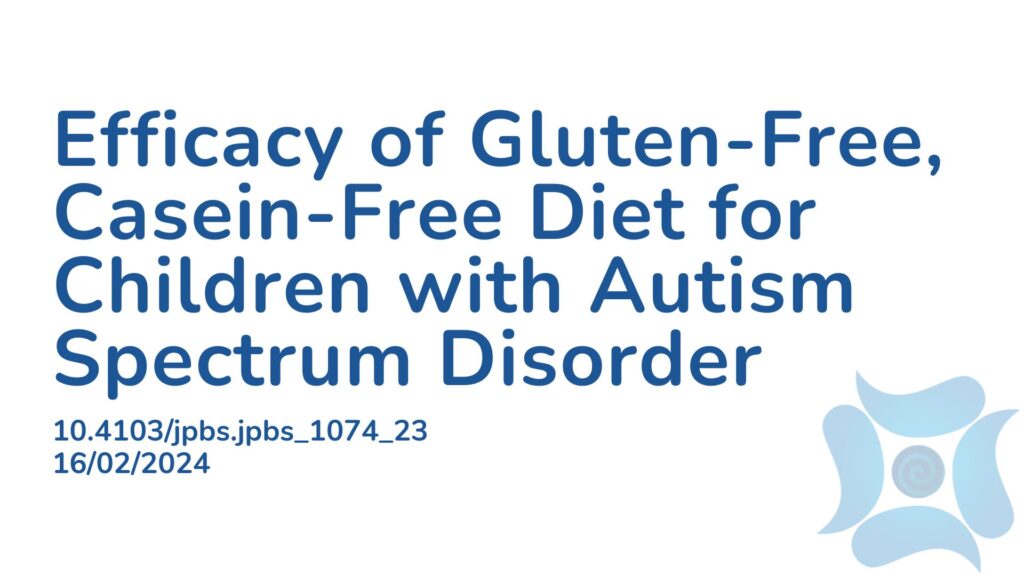Summary:
Over the past three decades, numerous dietary interventions have been explored for children diagnosed with Autism Spectrum Disorder (ASD). This study aimed to evaluate the effectiveness of the gluten-free, casein-free (GFCF) diet in a group of Egyptian children with ASD. The researchers conducted a prospective 12-month, open-label, case-controlled interventional study. Thirty-six newly diagnosed ASD children, who had not undergone prior therapy, were included. They were randomly assigned to two groups: group A received the GFCF diet, while group B served as the control and continued with their regular diet for 12 months. All participants were monitored for one year. Following the implementation of the GFCF diet in group A, significant improvements in CARS scores were noted compared to group B during the 6-month and 1-year follow-up periods. The CARS score is an ASD severity rating scale. The researchers concluded that the introduction of the GFCF diet shows promise as a helpful intervention for children with ASD. While definitive evidence regarding its effectiveness remains a topic of debate, this study contributes to the growing body of evidence supporting the benefits of the GFCF diet for children with ASD.
Abstract:
Over the past three decades, numerous dietary interventions have been explored for children diagnosed with Autism Spectrum Disorder (ASD). This study aimed to evaluate the effectiveness of the gluten-free, casein-free (GFCF) diet in a group of Egyptian children with ASD. The researchers conducted a prospective 12-month, open-label, case-controlled interventional study. Thirty-six newly diagnosed ASD children, who had not undergone prior therapy, were included. They were randomly assigned to two groups: group A received the GFCF diet, while group B served as the control and continued with their regular diet for 12 months. All participants were monitored for one year. Following the implementation of the GFCF diet in group A, significant improvements in CARS scores were noted compared to group B during the 6-month and 1-year follow-up periods. The CARS score is an ASD severity rating scale. The researchers concluded that the introduction of the GFCF diet shows promise as a helpful intervention for children with ASD. While definitive evidence regarding its effectiveness remains a topic of debate, this study contributes to the growing body of evidence supporting the benefits of the GFCF diet for children with ASD.
Article Publication Date: 16/02/2024
DOI: 10.4103/jpbs.jpbs_1074_23



